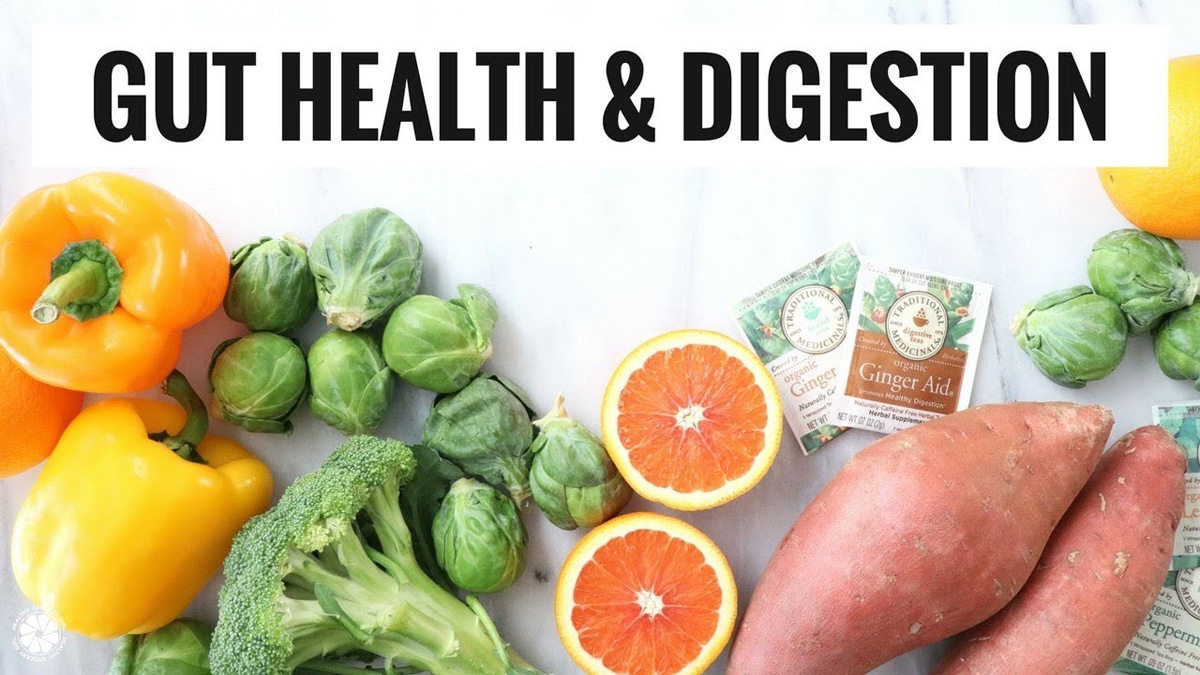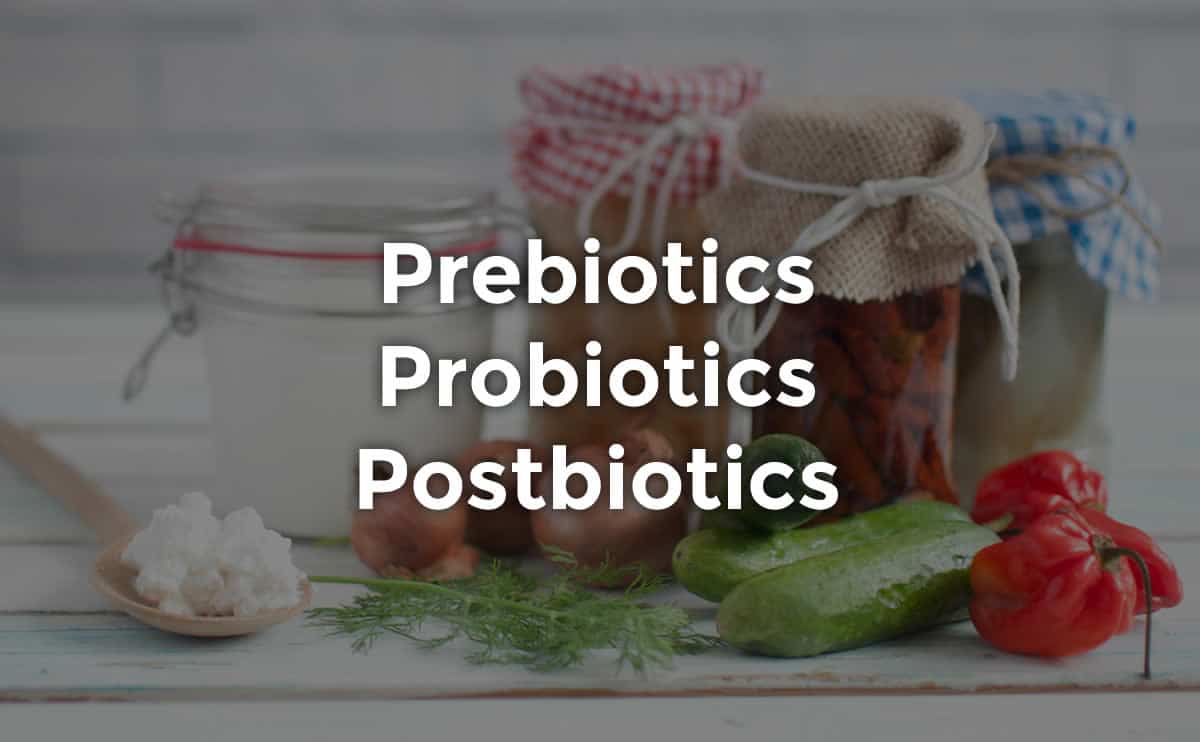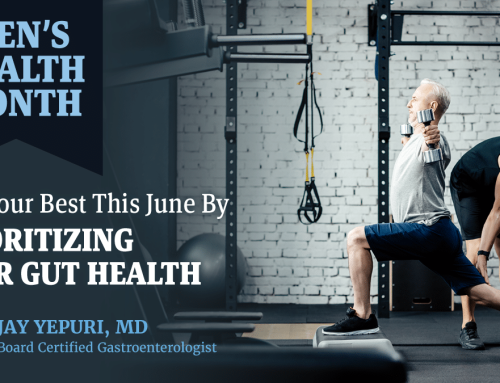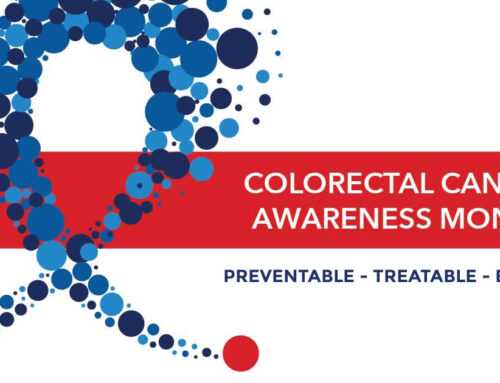Nourish Your Gut Microbes For Better Digestive Health
Have you ever walked into a restaurant and said, “Table for 100 trillion, please?” I’m going to assume not. But I propose that we need to start thinking this way!
With this thinking, you’ll realize that you aren’t just eating for one anymore. You’re eating for the 100 trillion microbes living in your intestines to create a healthy gut. These microorganisms – bacteria, viruses, fungi and their genes – make up your gut microbiome. Your gut microbiome is mostly made up of bacteria and its health is a direct reflection of your overall health – hence the saying “You are what you eat.”
Keeping these bacteria healthy means giving them the nourishment they need in order to keep you healthy and your gastrointestinal issues at bay.
Eating for a healthy gut microbiome can benefit you by:
- Improving digestion and absorption
- Reducing the risk of inflammatory disease
- Decreasing bloating, constipation and diarrhea
- Helping prevent colon cancer
- Aiding in weight management
- Supporting heart and mental health
- Reducing the risk of autoimmune disease
- Reducing the risk of diabetes
That’s a long list of health benefits I would want – and that’s not even all of them! Ongoing research continues to demonstrate more benefits of keeping your gut microbiome healthy.
Dr. Yepuri’s Dietary Insight – I am going to start creating more content relative to nutrition and how certain foods can benefit your health, with an emphasis on your digestive health. This article will be the cornerstone of my viewpoints on how dietary choices can improve our health. Remember that my recommendations are based on scientific research and years of experience as a digestive health expert. The intent of this content is to educate and get you thinking about how to improve your health through food. Please consult your doctor before making significant changes to your diet to make sure they are in your best interest.
As a gastroenterologist, I think of food categorically relative to digestive health. Let’s dive into the categories and some of the best food choices you can make to help improve your health.
The Pre, The Pro, and The Post
Nourishing your microbes is critical to keeping your gut healthy and aids in good digestive health. But nourishing the right bacteria is the key to unlocking a healthy gut. You have the good, the bad and the ugly bacteria. Feeding the good bacteria supports better digestive health.
So what are some of the best things you can feed your good bacteria for better gut health?
Prebiotics
These are food ingredients that fuel your microbes to grow strong. It’s like feeding Popeye a big can of spinach. Once he eats spinach, he grows stronger and can do some pretty impressive stuff.
Prebiotics cannot be digested so they pass through your digestive tract undigested and land in your colon, where they’re fermented and eaten up by your gut bacteria.
For many years, prebiotics were defined as oligosaccharides. Oligosaccharides are an ingredient of many types of dietary fiber. In 2016, the definition of prebiotics was expanded to include any substance beneficial to your gut bacteria.
Prebiotic-rich foods include:
- Raw chicory root
- Raw garlic
- Raw asparagus
- Raw leeks
- Raw Jerusalem artichokes
- Apple cider vinegar
Why you should feed your gut microbiome prebiotics:
- Beneficial effects on the immune system
- Enhances digestion
- Improves mineral absorption
- Decreases bloating, diarrhea and constipation
- Strengthens bones
- Reduces blood triglyceride levels
- Aids in weight loss
Prebiotics are the savory food for your gut bacteria. These foods strengthen the healthy bacteria in your gut to help reduce the risk of disease and uncomfortable gastrointestinal issues.
Probiotics
Probiotics are the friendly live bacteria – mostly Bifidobacteria, Lactobacillus and Bacteroides – in fermented foods or drinks that colonize your gut and become part of the microbiome. Taking probiotics is like adding soldiers to your gut’s army of beneficial microbes. It builds up the army to fight off the bad guys – the pathogenic or bad bacteria.
Probiotic-rich foods include:
- Kombucha
- Yogurt
- Kefir
- Sauerkraut
- Tempeh
- Kimchi
- Miso
Potential benefits of feeding your gut microbiome probiotics include:
- Helping outweigh pathogenic bacteria
- Improving gastrointestinal issues and conditions such as ulcers, Irritable Bowel Syndrome (IBS) and Small Intestinal Bacterial Overgrowth (SIBO)
- Reducing food allergies and food sensitivities
- Aiding in weight loss
- Decreasing inflammation
- Decreasing intestinal permeability (the “leaky gut”)
The list can go on and on about the possible benefits you can reap from probiotics. Loading up on these fermented foods can greatly benefit the army of good bacteria in your gut. However, probiotics are not for everyone and I encourage you to read my article on probiotics to better understand my specific recommendations and discuss with your doctor whether probiotics are right for you.
Postbiotics
A new vocabulary word for those new to the gut world – postbiotics. These “biotics” aren’t any type of food for your gut bacteria. These aren’t even live bacteria that can be found in certain foods. Postbiotics are the byproducts of your probiotics. Probiotics leave behind “waste products” during fermentation of certain types of fiber molecules (prebiotics).
In short – probiotics eat prebiotics to yield postbiotics.
The metabolic process of these natural postbiotics helps regulate the composition of your gut microbiome. It’s the action of the probiotics’ byproducts that contributes to homeostasis (balance) in your gut. Taking postbiotics could help generate higher amounts of active beneficial molecules in your gut compared to taking probiotics alone.
Examples of these byproducts include:
- Short chain fatty acids – acetate, butyrate and propionate
- Lipopolysaccharides
- Indole
- Teichoic acid
- Lactocepin
- p40
Potential benefits of postbiotics include:
- Removing harmful pathogens
- Promoting “good gut bacteria” growth
- Reducing the effects of inflammatory conditions
- Strengthening the immune system
- Decreasing gut permeability
- Helping prevent diabetes and high blood pressure
- Eliminating free radicals
The above is just the tip of the iceberg regarding what prebiotics, probiotics and postbiotics can do for your health. Nourishing your gut microbiome with these “biotics” can help improve gut homeostasis, potentially reduce the risk of developing a variety of diseases and get your digestive health back on track.
A New Type of Prebiotic: Polyphenols
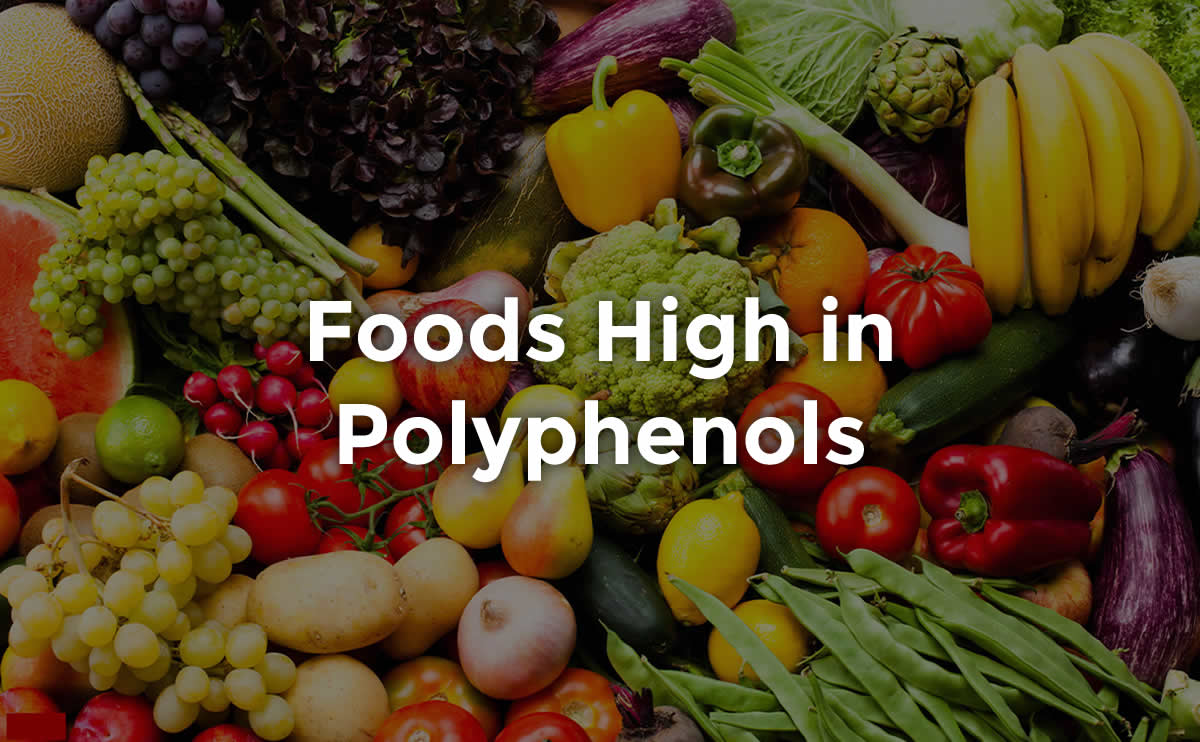
With the concept of prebiotics redefined, the list of possible prebiotics has grown. Among these new candidates are the polyphenols.
Studies show polyphenols support your gut microbes. Green tea, which is abundant in polyphenols, has been shown to increase the diversity of your gut microbiome while suppressing any invading harmful bacteria.
Polyphenols found naturally in most fruits and vegetables have been famous for their antioxidant effects by removing free radicals and ability to combat cell damage. Now, we can add to their job description: enhancing gut health.
Polyphenol benefits:
- Inhibit pathogenic bacteria
- Support digestive health
- Fight cancer cells and tumor growth
- Reduce the risk of type 2 diabetes
- Decreases inflammation
- Promote cardiovascular health
- Support body weight regulation
- Reduce the appearance of aging (everyone loves that one!)
Polyphenol foods include:
- Blueberries
- Kiwis
- Cherries
- Green tea
- Coffee
- Blackberries
- Yellow onions
- Red wine
- Kale
- Leeks
- Miso
- Dark chocolate
Your gut bacteria crave these foods – and so should you! Loading up on these polyphenol-rich foods can support digestive health and even reduce the risk of colon cancer by stimulating the growth of beneficial gut bacteria.
Ferocious Fiber
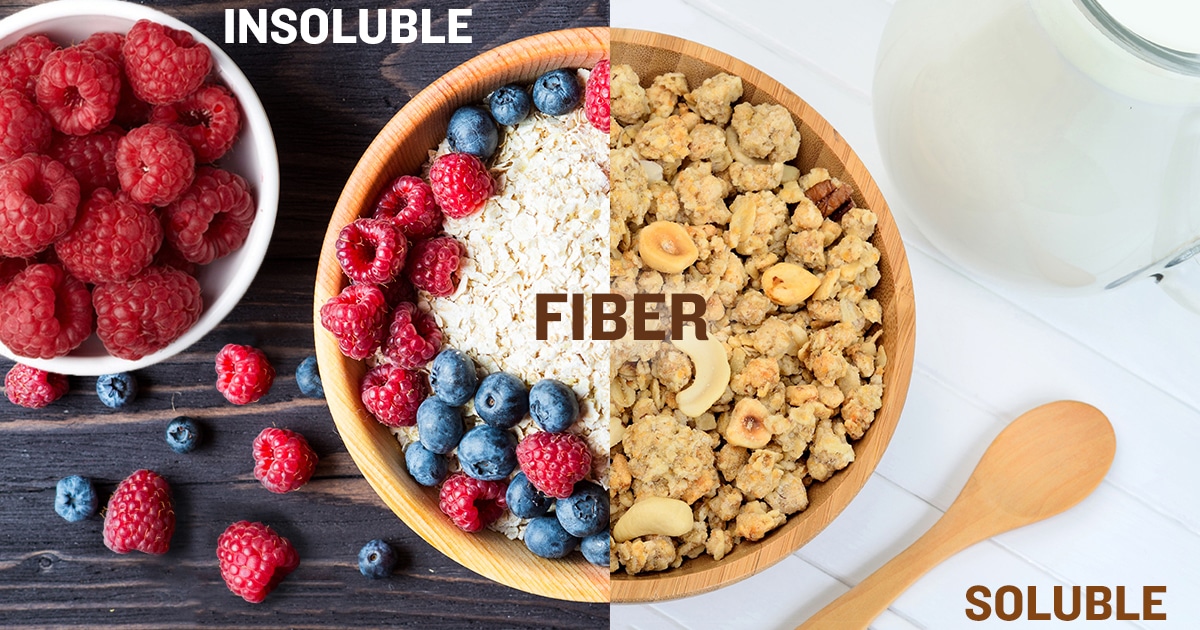
Another food source that helps your gut microbiome is fiber. Fiber is the dietary carbohydrates in plants that cannot be digested. Fiber is either soluble or insoluble.
Soluble fibers dissolve easily in water. When these plant-based fibers are combined with the water in your digestive tract they form a gel. This gel helps you feel full.
Soluble fiber foods include:
- Oatmeal
- Nuts
- Beans
- Apples
- Blueberries
Insoluble fibers don’t dissolve in water. So, when mixed with water in your gut they expand, acting like a sponge and “bulking” up your stool. Insoluble fibers prevent constipation, promote weight loss and reduce the risk of cancer and diverticulosis.
Insoluble fiber foods include:
- Wheat
- Bran
- Vegetables
- Whole grain
- Beans
- Seeds
High-fiber diets have been shown to prevent the following:
- Colon cancer
- Constipation
- Diverticular disease
- Irritable Bowel Syndrome (IBS)
- Hemorrhoids
Americans normally correlate fiber with helping constipation, which is true. But, fiber also restores a healthy gut microflora. Fiber feeds your good gut microbes to help them populate and thrive, leading to better digestive health.
Foods and Lifestyle Habits to Avoid for a Healthier Gut
We’ve talked a great deal about all the yummy foods you should load up on for a healthy gut microbiome. The foundation of good gut health depends on prebiotics, probiotics, postbiotics and fiber in your diet. Good gut bacteria thrive off of these foods, leading to better digestive health.
Life is all about a balancing act and your gut is no different. When you feed your good gut bacteria the right nutrients, they thrive – outweighing the effects of bad gut bacteria. But, when you start feeding the bad gut bacteria the diet they like, the scale starts to tip. More bad gut bacteria that are active cause a dysfunctional digestive tract.
Tips to outweigh your bad gut bacteria:
- Ditch the artificial sweeteners
- Eat fewer processed foods
- Eliminate gluten
- Avoid smoking, excessive caffeine & alcohol
- Stay hydrated
- Avoid overuse of antibiotics
- Get a good night’s sleep
- Reduce stress
Mechanics of Digestion
While the focus of this article is food types that can help us achieve better digestive health, I did want to discuss 3 ways you can assist the digestive process to help ensure that nutrients are being absorbed properly.
- Drinking water
- Chewing slowly
- Exercise
Drinking water is good for your overall health. In terms of digestive health, water helps your body break down food to absorb nutrients, remove waste and process soluble fiber.
With our busy schedules, we might not think about how quickly we chew our food. Chewing food more slowly breaks the food down into smaller pieces, which puts less stress on your stomach and makes it easier for your small intestine to absorb nutrients. Failing to chew thoroughly can cause digestive issues such as indigestion and constipation.
Did you know? An ancillary benefit to chewing food more slowly is that it can help you lose weight. This occurs by feeling more full and therefore consuming fewer calories.
Exercise can relieve constipation and promote healthy digestion when you’re at rest. Over time, regular exercise can strengthen your digestive tract. If you’re fit, the amount of blood diverted from your digestive system decreases because the need is less urgent.
Ditch the Fad Diets – Eat a Healthy Gut Diet
Everyone’s biological makeup is different. I’m different from you, you’re different from your friends and your friends are different from me. There is no fad diet on the market today that is a cure-all for any disease or that is “one size fits all.” So, you shouldn’t go yo-yoing from one diet to the next.
You can restore healthy gut microbiome by consuming the Fantastic Four:
- Prebiotics (polyphenols)
- Probiotics
- Postbiotics
- Fiber
While most of these nutrients come from vegetables and fruit, you don’t have to become a vegetarian to have a healthy gut microbiome. Vegetables and fruits are an essential part of you and your gut’s diet, but this fact doesn’t mean you have to restrict everything else.
Find what diet suits you. If it’s a vegetarian diet, that’s OK. But, lean red meat can also be healthy when consumed in moderation.
Fish is a great source of omega-3 fatty acids. Omega-3 fatty acids reduce the risk of cancer, support brain health and prevent cardiovascular disease. Healthy fats are just as important as your daily fruits and vegetables, so if someone tells you a low-fat diet is “the way” – think again.
A low-carb diet is another one of those fad diets everyone seems to be getting a kick out of. However, you can’t eliminate all carbohydrates from your diet – they are essential for energy.
A balanced diet is necessary to improve the diversity of your gut microbiome and to give your good gut bacteria what they want. A mix of carbohydrates, fats and proteins is essential. Eliminating one food group could deny vital nutrients to your gut and body.
If you have questions about how to improve your digestive health or symptoms that you’re experiencing, please call my practice at 817-267-8470 or schedule an appointment online.
I’ll continue to create new dietary content, so follow me on Facebook to see my posts about restaurants I visit in the Fort Worth, TX area and healthy options we have when eating out.

